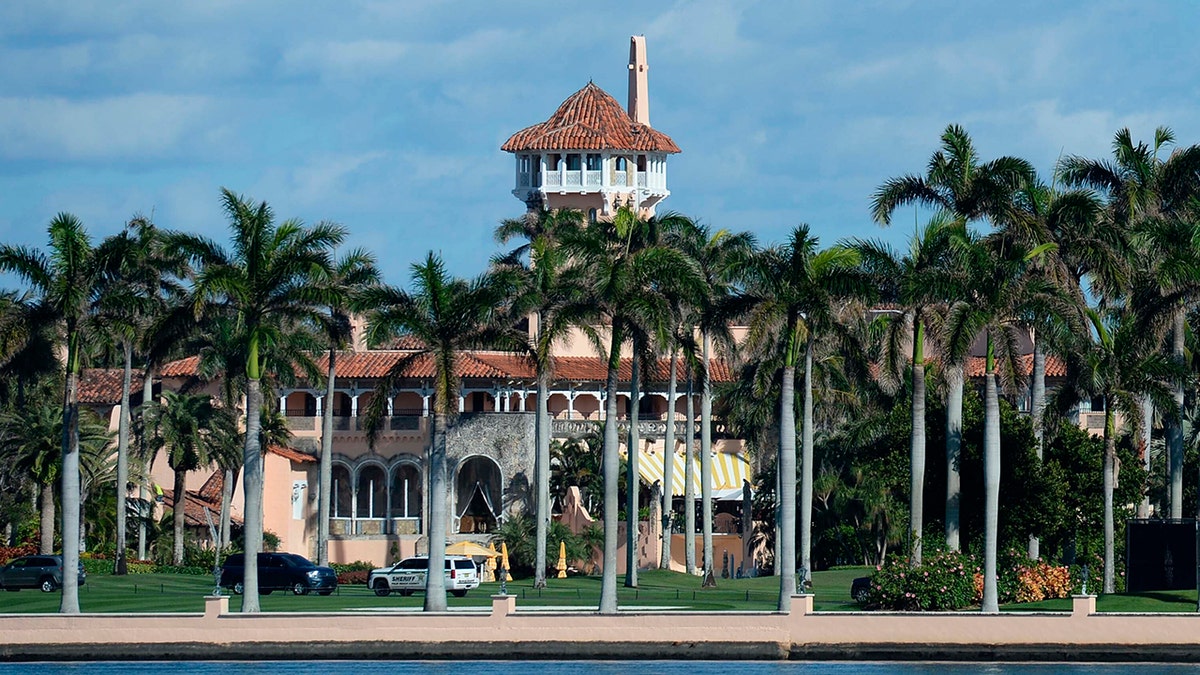Ashley Moody on Trump's teased 'major motion' on Mar-a-Lago raid
Florida Attorney General Ashley Moody sounds off on Trump's claim of an impending 'major motion' and reports that the former president is seeking a 'special master' to review the Mar-a-Lago raid.
Attorney General Merrick Garland behaves like an imperious ruler. How dare Americans question his motives or actions. The little people have no right to ask questions or doubt his orders.
This was Garland’s indignant attitude during his recent four-minute news conference when he dressed down the public for its skepticism, if not outrage, over the armed pre-dawn raid on former president Donald Trump’s home. Apparently, citizens have no right to know what went on there or why the FBI deployed such thuggish tactics on a former president.
"I will not stand by silently while [the FBI and DOJ’s] integrity is unfairly attacked," lectured the attorney general. Then he went silent as a sphinx, refusing to answer any questions. Garland sees himself perched on an acropolis high above the proletariat. He commands his domain — the Justice Department and the FBI — like a bully dictator who has no time or tolerance for dissent.
This is the hazard when you pick a federal judge to be the nation’s chief law enforcement official. Too many of them believe their decisions are sacrosanct and beyond reproach. Federal judges are anointed for life and drink too often from the cup of self-righteousness. Garland declared that he personally approved the raid, as if by decree that should end the matter at once.

The raid on the Mar-a-Lago has raised huge questions about the actions of the Department of Justice. FILE: (AP Images) (AP)
So, imagine Garland’s fulminating reaction (and blown gaskets) when he learned on Monday that a lowly magistrate in Palm Beach, Florida, had the temerity to formally reject the AG’s argument to keep the entire Trump affidavit under seal. In his written ruling, Judge Bruce Reinhart, who approved the warrant for the raid, cited "the intense public and historical interest in an unprecedented search" as justification for releasing at least some of the affidavit’s contents. His reasoning is sound.
Garland has until Thursday to provide the magistrate with proposed redactions. But don’t expect our tyrannical AG to capitulate —at least in the way Reinhart envisions. Most of what the Justice Department submits will likely be obscured with thick black ink, except the page numbers and title. If Reinhart determines, as he should, that this is insufficient and obstructive, Garland will run like a jackrabbit to his former pals on a higher court to maintain his cover-up.
The attorney general pretended to be forthcoming when he moved to release the warrant itself and the inventory list of material seized. It was a not-so-clever ruse because little was revealed in those two documents. The affidavit, on the other hand, would disclose why Garland thought it was so essential to use a criminal warrant instead of a less intrusive subpoena to retrieve documents from Mar-a-Lago.
Importantly, the affidavit might also divulge whether the FBI was dishonest in its representations to the court or otherwise concealed relevant and exculpatory information. It would not be the first time the FBI has lied to get what it wants, as I noted in my last column. Sadly, the bureau has a long and disgraceful record of false statements, deceit, omissions, and manipulation of evidence to gain invasive warrants. Perhaps duplicity is the underlying reason why Reinhart now wants at least some of the affidavit exposed to the light of public scrutiny.
In his press conference, Garland stated that it is standard practice to "narrowly scope any search warrant that is undertaken." But that is not what he did. A close examination of the warrant shows that the AG concocted a general warrant not at all narrow in scope. That gave FBI agents carte blanche to broadly search unidentified "rooms, structures, and buildings on the estate." They were allowed to confiscate anything that might remotely involve government documents during a four-year period, "as well as any other containers/boxes that are collectively stored or found together…" Basically, agents could grab everything they saw. They did.
Such an unlimited warrant is an unconstitutional violation of the Fourth Amendment, which demands that all warrants "particularly [describe] the place to be searched and…things to be seized." To be valid, a warrant must be quite specific about exact locations within a home and explicitly identify documents sought. The U.S. Supreme Court has consistently held that "general searches have long been deemed to violate fundamental rights." (Marron v. United States, 275 US 192)
CLICK HERE TO GET THE OPINION NEWSLETTER
Trump has indicated that his legal team intends to file a motion to challenge Garland’s warrant as an egregious abuse of the Fourth Amendment’s prohibition on unreasonable searches and seizures. They most certainly should. To describe the raid as "unreasonable" is an understatement. Moreover, there is evidence that the FBI well-exceeded its ill-defined authority by seizing "boxes containing records covered by attorney-client privilege and potentially executive privilege," according to Fox New Digital.
Garland is reportedly opposing Trump’s request for an independent "special master" to review the seized records. Why? If the attorney general has nothing to hide and if he truly believes that his raid on Trump’s home met constitutional standards, why would he contest a private review by a neutral third party?
CLICK HERE TO GET THE FOX NEWS APP
Garland’s continuing efforts to evade transparency will only fuel the public’s distrust of the DOJ and the FBI. In case after case, they have protected partisan allies and punished political adversaries. Garland has arrogantly and corruptly transformed his federal fiefdom into the Department of Injustice.











































